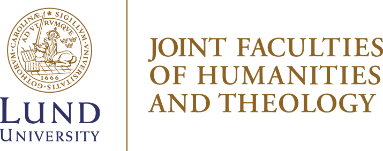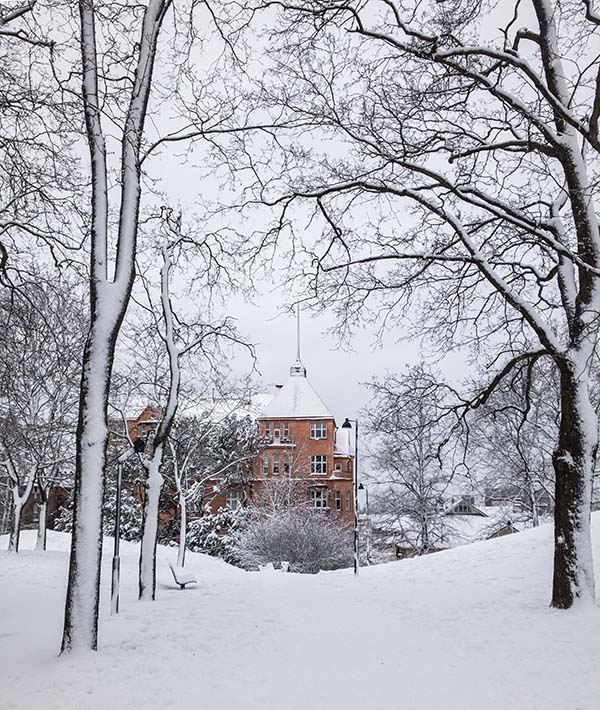Katarzyna Bobrowicz
Joint Faculties of Humanities and Theology
Katarzyna's exchanges were fruitful for her research and networking. At the same time, she is careful to point out that they also gave her an opportunity to take a break from her thesis work, to reflect and to meet new people with completely different experiences and perspectives.
Hello Katarzyna! You defended your dissertation in 2019. At what department were you a PhD student, and what was your area of research?
I was a PhD student in cognitive science, at the Department of Philosophy and Cognitive Science back then. I was interested in memory and problem solving, and worked in comparative psychology, that is, with animals, and in developmental psychology – with children.
You travelled abroad on Erasmus+ staff exchange on two different occasions. Please tell us more!
I sure did, it was a great opportunity. For my first exchange, I went to Åbo in Finland for a week-long course in Animal Law. I expanded my knowledge of legal matters that could benefit from my expertise, and, of course, my network beyond my field and beyond academia in general. For my second exchange, I went to Poland for a week-long job-shadowing stay to learn more about the day-to-day work of animal keepers, especially with regards to raccoon care! This allowed me to have a better understanding of the keepers’ perspective on such work (and the reality of working in the relevant professional structures) and learn more about, in particular, raccoon diet and habits, and upkeep of the facilities.

How did you get in contact with the colleagues in Poland and Finland, prior to your mobilities?
I messaged the colleagues in Poland directly, using the relevant contact details. As for the colleagues in Finland, if I recall correctly, I saw the Animal Law course on LinkedIn and I enrolled through the regular application form. After making sure that they would want a non-lawyer in the group, of course.
At what stages in your PhD studies did you travel abroad on these mobilities?
I did this in the middle and toward the end of my PhD studies, once the empirical studies were already rolling. This allowed me to branch out, shift my perspective and also explore professional opportunities outside of the academic context.
Were the exchanges beneficial for your research and for your future career? In what ways?
The exchanges were certainly beneficial for my research because, first and foremost, they allowed me to take a pause and develop without thinking about my PhD research projects. This was priceless because I needed such pauses to keep going and resolving the day-to-day issues. The exchanges also broadened my research network, allowing future collaborations with the researchers and the partners that I met there.
Do you feel that you have created or strengthened networks that you will be able to benefit from in the future?
Definitely, this was one of the main reasons behind joining the Erasmus+ programme, and the exchanges allowed me to rather forge new connections than strengthen the old ones.
What was the best part of your mobility periods?
This might be a bit of a cliché, but people were the best part of my mobility periods. Meeting people with other perspectives and other day-to-day struggles was definitely refreshing, motivating and informative in terms of my future endeavors.
What were the challenges?
Travelling was a challenge – I enjoy changing my environment but travelling, e.g., flying, always impacts my short-term wellbeing. Otherwise I have not experienced any challenges!
What about the economical side of these exchanges – were you fully reimbursed for your expenses?
Yes, I was – rapidly and without any struggle.
How did you find the process of applying for the Erasmus+ funding, and reporting back after each mobility?
The process was relatively simple, compared to other initiatives that I participated in.
Is there anything else you would like to tell us? Do you have any tips or suggestions for PhD students who will venture out on mobilities in the future?
Do not treat this as a research opportunity that should benefit your PhD studies! Do something entirely different – related but relevant for you and your development, not your immediate research interests.
What are you up to today? Do you think that you can use and benefit from your experiences from the two Erasmus+ mobilities?
Today I am a postdoc in psychology at the University of Luxembourg, but, up till today, I am giving lectures on animal cognition for future lawyers thanks to my exchange in Finland. I can use and benefit from my experiences because I understand that all parties in joint projects/endeavors have their own interests that need to be negotiated.


